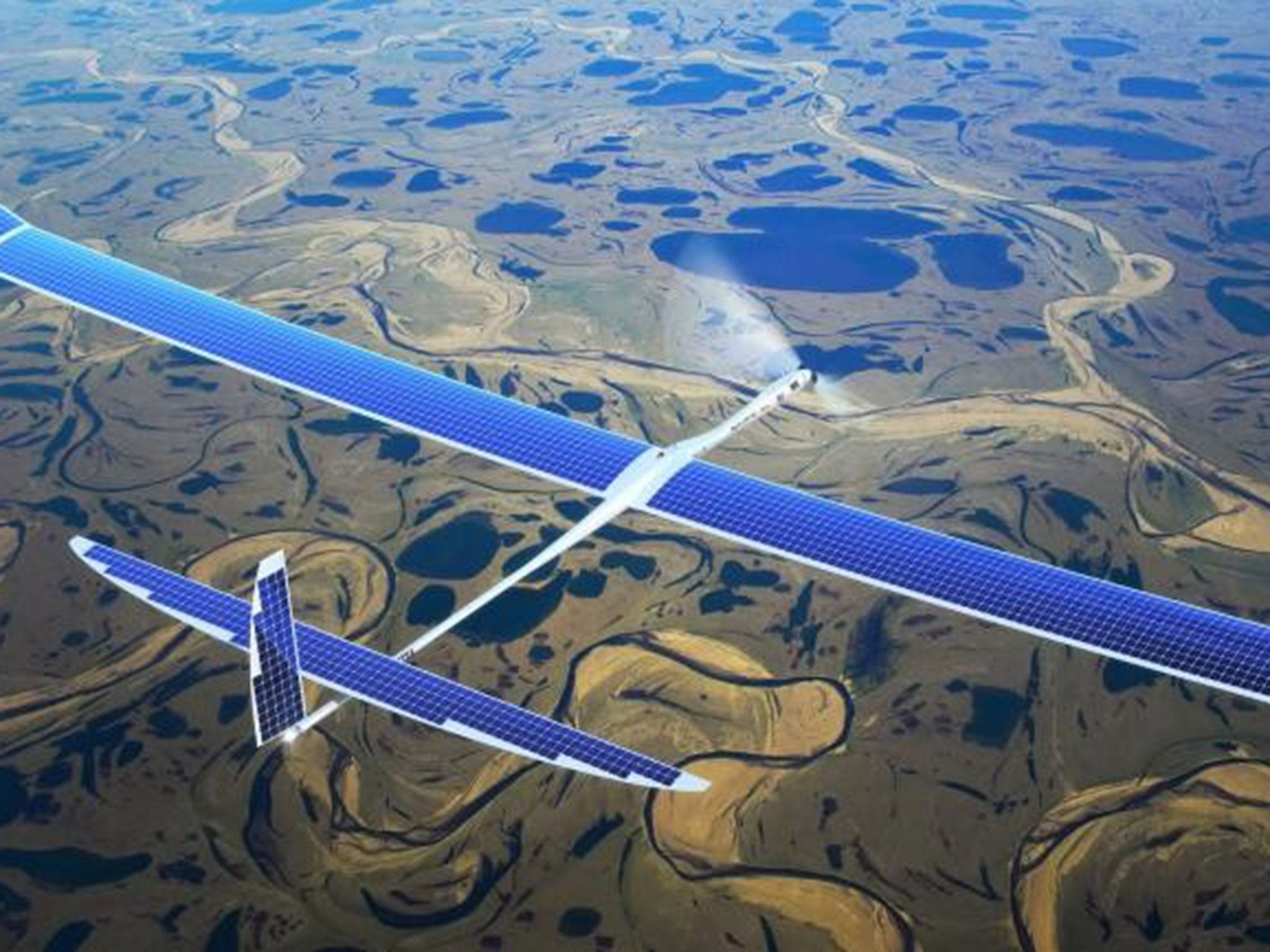Facebook test flies solar-powered drones over the UK in attempt to increase internet access
The solar-powered drones are intended to be flown for months without landing and will operate at altitudes of more than 60,000ft

A pilotless plane with a wingspan bigger than a Boeing 737 but weighing less than a car has been tested over the UK by Facebook.
Founder and chief executive Mark Zuckerberg announced the test flights as part of plans to increase internet around the world.
The solar-powered drones are intended to be flown for months without landing and will operate at altitudes of more than 60,000ft, far higher than commercial airline flights.
The planes were developed by Ascenta, a Somerset-based company led by engineer Andrew Cox. It was bought by Facebook in March 2014 for £12m.
Internet connections will be beamed down to the ground from the aircraft using laser technology and are seen by Facebook as an affordable means of improving access to the web in remote areas.
“As part of our Internet.org effort to connect the world, we’ve designed unmanned aircraft that can beam internet access down to people from the sky,” said Mr Zuckerberg in a blog post. “I’m excited to share that that we’ve successfully completed our first test flight of these aircraft in the UK.
“Aircraft like these will help connect the whole world because they can affordably serve the 10 per cent of the world’s population that live in remote communities without existing internet infrastructure.”
The Internet.org initiative is Facebook’s attempt to build on its 1.3 billion user base by connecting the rest of the world to the internet – described by the initiative as “one of the greatest challenges of our generation”.
As part of a keynote speech at the social network’s F8 developer conference in San Francisco, the firm’s chief technology officer Mike Schroepfer said: “We need to connect all those on the internet who aren’t yet connected.”
Some 2.7 billion people are connected to the internet but almost two-thirds of the world’s population still do not have access.
It was recognised last year by Facebook that creating a fleet of drones flying at extreme altitudes will present new challenges to the regulatory authorities. In particular, Facebook wants a system, barred under present aircraft rules, in which one person can be in charge of multiple aircraft rather than just a single drone. By flying at between 60,000ft and 90,000ft the drones will be out of reach of normal weather conditions and usual air traffic rules.
Facebook has already selected at least 21 locations in Africa, South America and Asia where it would like to deploy the drones. Charities are likely to be given the task of operating them and Facebook has expressed hopes of getting them airborne and operational within five years.
Fellow technology giant Google is also working on an air-based internet connection solution in the form of its Project Loon, which is using high-altitude weather balloons to provide a data connection. It hopes to send them 20km into the stratosphere to form a broadcasting network.
Amazon, the online retail giant, wants to develop a delivery service using drones and has approached the government for permission to carry out trials.
Richard Goodwill, the Transport Minister, said earlier this week: “My favourite word is deregulation, and we need to make sure that wherever you are in the world, and if you want to innovate and you want to invest in this sort of technology, come to the UK because we’re here to help you.”
Join our commenting forum
Join thought-provoking conversations, follow other Independent readers and see their replies
Comments
Bookmark popover
Removed from bookmarks